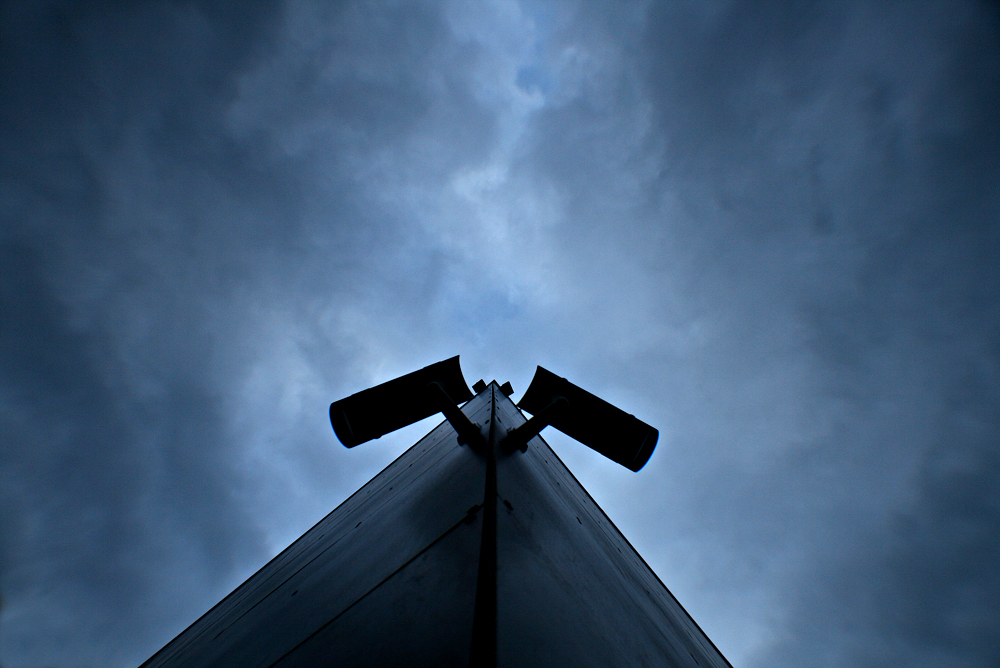Whistle-blowing disclosures are symptomatic of the enhanced role of secrecy in the state apparatus and the degree of manoeuvre and control it provides the executive, often the holders of classified information. The development of information and communication technologies has enabled governments to gather information hitherto unimaginable. They can now supervise the information flow, in the name of national security. Data mining and surveillance techniques impact the rights of individuals and groups. They also enable the executive to gather unlimited amounts of information, often in the knowledge that their practices are secret and no correlative measures of democratic control exist.
When existing channels of control fail, it is often through an act of whistleblowing that democratic accountability can be ensured. Whistle-blowing spotlights a paradox that is at the heart of democracy. Democracies require secrecy to survive and work, but have limited means to stop the overreach of executive action that is shrouded in the fog of secrecy. Whistle-blowing is often a last resort when all other measures fail or are inadequate. It is also at best an extra-legal measure, since it violates the non-disclosure clause that protects classified information. What is interesting from the point of view of the democratic process is the role that extra-legal actions can play in strengthening and upholding democracy. Whistle-blowing is a by-product of dissent, which plays a crucial role, often from outside the confines of law, in exposing cases of abuse, corruption, citizens’ rights violations, etc. Whether or not we consider the consequences, whistle-blowing can be deemed a paradigmatic democratic act.
In the name of the public interest
How can we classify the crucial role of whistle-blowers in a democracy? An often-cited function of whistle-blowing relates to the public interest. Many countries refer to whistle-blowing disclosures as public interest disclosures, but this notion of public interest itself is not very clear. Clear criteria for defining the public interest are needed if whistle-blowing is to be addressed appropriately.
Yet defining the public interest is not an easy business. Definitions of public interest abound in both common parlance and academic literature. Over the history of the term, it has been seen variously as common interest, aggregative interest, core set of interests, common good - the list is long. Political Philosophers Daniele Santoro and Manohar Kumar, in their recent paper ‘ A Justification of Whistleblowing’ and book ‘Speaking Truth to Power. A Theory of Whistleblowing’ argue that a common core can be discerned in discussions on public interest. The consensus is that public interest “consists not only in the enjoyment of a core set of fundamental rights but also in the awareness that one can freely enjoy those rights”. They argue that the public interest is the core set of civil-political rights that determines benefits. In this understanding, the quest for transparency in the fight against corruption can be considered in the public interest. Blowing the whistle can be seen not only as an act in the public interest but also as an act of dissent intended to protect the public interest. Through unauthorised disclosures, citizens are made aware not only of the threat to their rights but also of the limitations of the democratic procedures intended to mitigate such threats. Surveillance, data mining, intelligence gathering, and covert defence operations often covertly undermine citizens’ rights. They are unable to assess where they stand with respect to the law and whether the forces exerted on them are justified. It is this aspect that makes secret operations arbitrary and calls for measures of transparency and accountability. Whistle-blowing can meet this need in some crucial instances of rights limitations.

A threat to national security?
Despite this role, whistle-blowing is treated with suspicion in many countries. It is not uncommon to hear charges of espionage or treason levelled against whistle-blowers. In many countries, political whistle-blowers also incur prison sentences for breaching secrecy. Edward Snowden is a case in point. His disclosures revealed the extent of the NSA’s surveillance capacity and its breach of private and diplomatic information. Despite this, he was charged on several counts, including the Espionage Act. Suspecting, based on treatment of whistle-blowers in the recent past, that he wouldn’t get a fair trial, he had to escape the USA and seek refuge in Russia. His example testifies to the level of personal and professional risks involved in unauthorised disclosures.
Social and political opinion on whistle-blowers is often split. On the one hand, whistle-blowers are celebrated as harbingers of transparency and accountability, on the other they are accused of betraying the groups and employers they work for, breaching their contract with their employers and their peer groups and exposing them to risk. The latter view presents them as a threat to social order, society, and polity at large. In the opinion of governments, they also threaten national security and safety. It is in this polarised atmosphere that whistle-blowers operate. How whistle-blowers are treated reflects the capacity of societies to handle dissent and dissenters. Respect for disobedience and a deliberative engagement with dissent is the hallmark of a functioning and mature democracy.
On this count, most current democracies fail to inspire confidence. They have largely treated whistle-blowing with suspicion. Personal and professional retaliation for unauthorised disclosures are quite common. To be fair, it is not difficult to see why. National security is a sacred cow, and it is this obfuscation that allows those in power to maintain control and escape all forms of accountability. The fact that national security and safety evoke fears of existential threat means that citizens are more than willing to defer to the judgement of the executive and treat any whistle-blowing activity as undermining the intelligence services. What is considered an imminent threat to national security is given priority over remote concerns for personal liberty and privacy in the political and general social landscape.

But the PRISM revelations have shown that these concerns for personal liberty and privacy are far from remote, and that dangers to national security are not always credible as presented in the military discourse largely governed by a conservative understanding of security. It is thus not uncommon to find increased retaliation against political whistle-blowers. An item dated 2018 on whistle-blower activity from the Department of Defence Inspector General’s semi-annual report indicates that, over the fiscal period of 2013 to 2018, acts of retaliation or intimidation were perpetrated on 195 whistle-blowers, most of them in the military services. This illustrates the professional and personal threats whistle-blowers are exposed to and makes protecting them a priority for democracies.
Calling for protection and anonymity?
That whistle-blowing is key to democratic transparency and accountability is well-established, but the attitude of democratic institutions towards whistle-blowers is less rational. Daniele Santoro and Manohar Kumar argue that the crucial role played by whistle-blowers puts them in the same league as supporters of human rights. Since whistleblowing uncovers acts of injustice and corruption, it should be recognised as an act in the public interest and given equal respect and protection. It is crucial for democracies to protect whistle-blowers because this signals acceptance of the role they play in upholding and strengthening democracy.
The question though is what kind of whistle-blowers (anonymous or public) deserves protection. The authors contend that both kinds deserve protection if their act is in the public interest. Anonymous disclosures are not really symptomatic of the failure or inability of the whistle-blower to withstand scrutiny of their actions. They reflect the failure of democratic institutions to inspire the confidence and provide the safe channels of disclosure and fair trial that would encourage disclosure. Only anonymity enables many disclosures to be made, enriching democracy and activating a self-correction mechanism.
Anonymity, at times, enables the whistle-blower to serve the public interest. It enables whistle-blowers to do the right thing without exposing themselves to an avoidable risk of harm. Wrapped in the cloak of anonymity, the whistle-blower can speak the truth and challenge the unfair allocation of informational resources and power that threatens to undermine democracy.
Manohar Kumar currently serves as Head & Assistant Professor (SSH) of Political Philosophy at the Indraprastha Institute of Information Technology in Delhi. Previous to that he was a postdoctoral fellow at the Aix-Marseille School of Economics (AMSE). Claire Lapique is a scientific journalist at AMSE.
Photos © Unplash and Flickr
Référence : A justification of whistleblowing, Manohar Kumar, Daniele Santoro, Philosophy and Social Criticism, 2017. 2017, Vol. 43(7) 669–684.






